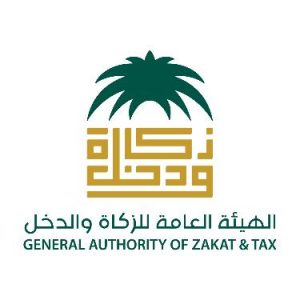VAT: securing the financial future of the GCC
As 2018 fast approaches, businesses across the Gulf Cooperation Council (GCC) are preparing for one of the biggest taxation changes to ever be introduced in the region – the introduction of VAT.
When the six member states of the GCC – Saudi Arabia, Bahrain, Kuwait, Oman, Qatar, and the United Arab Emirates – signed a VAT Framework Agreement in early 2017, they confirmed a new phase in the region’s economic development.
VAT (Value-Added Tax) or its equivalent, Goods and Services Tax, or General Sales Tax (both often abbreviated to GST) is already common in most of the world’s major economies. Of the United Nations’ 193 member states, 153 (79%) have implemented VAT to date.
Globally, VAT rates range from 5% in Canada through to 25% in Portugal. The GCC’s rates will match Canada’s, with a 5% rate being introduced on goods and services.
The decision by the GCC to introduce its own VAT regime is seen as a significant step towards modernization, providing additional government revenue that both protects against instability in oil prices, and brings the region into line with other major economic blocs, such as the European Union and North America.
The UAE’s Ministry of Finance states:
“VAT will provide our country with a new source of income which will contribute to the continued provision of high quality public services into the future. It will also help government move towards its vision of reducing dependence on oil and other hydrocarbons as a source of revenue.”[1]
What is Value-Added Tax?
VAT is an indirect or general consumption tax placed on the sale of almost all goods and services. It was first used in France and Germany in the mid-20th Century. Today, the OECD believes it accounts for 20% of global tax revenues[2].
In the GCC, some products will have zero VAT, such as medicines and medical equipment. Some services, too, such as the leasing of residential housing, are exempt from VAT.
Businesses involved in any part of a supply chain must actively collect VAT. A VAT system works by applying a tax to each transaction. Businesses selling goods or services impose and collect VAT charges from their customers (known as ‘output tax’), while businesses buying goods or services pay VAT to their vendors or suppliers (known as ‘input tax’). Most businesses will both pay input tax and collect output tax. The details of these transactions make up a business’s VAT returns, with the balance of the output tax minus the input tax being the overall figure owed to the tax authorities.
Operational challenges
Although it is the final consumer who bears the ultimate cost of VAT, rather than the businesses in the supply chain, those businesses still act as collecting agents. This is one of the major appeals of VAT, as it reduces the administrative burden on the state and “cuts down on misreporting and tax evasion”[3].
However, the change will inevitably bring added uncertainty and operational challenges to businesses in the region. Ratings agency Fitch warned that the introduction of VAT in GCC countries “will create risks for companies and put pressure on performance and cash flows”[4].
In particular, it highlighted the costs associated with new training and procedures, reconfiguring IT systems, and the compliance costs of collecting and remitting the tax.
In addition, it noted that companies that supply goods and services between GCC members, or that operate within or between free zones, could face additional complexities, as agreements between individual GCC members could vary.
Implications for the business community
 Saudi Arabian businesses are set to be the earliest in the GCC to face these challenges. The country is set to implement VAT from January 1, 2018, following approval of the implementation regulations in September by the Board of Directors of the General Authority for Zakat and Tax (GAZT), chaired by HE the Minister of Finance, Mohammed Al-Jadaan.
Saudi Arabian businesses are set to be the earliest in the GCC to face these challenges. The country is set to implement VAT from January 1, 2018, following approval of the implementation regulations in September by the Board of Directors of the General Authority for Zakat and Tax (GAZT), chaired by HE the Minister of Finance, Mohammed Al-Jadaan.
All Saudi businesses with annual revenues exceeding SAR 375,000 must register for VAT. Businesses with annual revenues between SAR 187,500 and SAR 375,000 have the option to register, if they wish. The deadline to register via the dedicated GAZT VAT website is December 20, 2017. Any companies that have not registered by then face a fine of SAR 10,000.
The 250 largest businesses in the country, already registered with GAZT for tax, are being registered automatically for VAT. Small businesses with turnover below SAR 1 million have an additional year to register, i.e., until January 1, 2019, to enable them to ensure they are VAT-ready.
The Governor of GAZT, His Excellency Suhail Abanmi, commented: “Businesses of all sizes have much to do to prepare for the introduction of VAT and GAZT is ready to support them through the process. Ensuring businesses understand the implications of VAT – and the steps needed to prepare – is a priority for GAZT.”[5]
Financial penalties will be imposed on companies who are not VAT compliant. In serious cases, such as tax evasion, businesses face fines of up to SAR 1 million, two years imprisonment and other criminal penalties – in addition to a 200 per cent penalty.
The threat of negative publicity, and the potential impact that could have on a business’s investors and customers, is also expected to be a significant factor contributing to a widespread eagerness to ensure the transition to a VAT regime is as smooth as possible.
VAT-registered businesses will need to document in detail every transaction in which they are involved. They must also take steps to ensure they complete VAT returns as required, and that their cash flow is managed appropriately in order to make quarterly VAT payments.
A report by specialist VAT consultants, The VAT Consultancy, counsels that:
“There is a systems challenge for corporates in terms of how they capture the correct information for reporting and invoicing. Certain GCC member countries rely on cheques and post-dated cheques as the main instruments for carrying out large corporate transactions in certain industries. Businesses will, therefore, need to fully understand the tax point rules and how to correctly book these transactions to ensure correct VAT reporting.[6]”
VAT in Saudi Arabia
From January 1, 2018, all imports and supplies of goods and services in Saudi Arabia will be subject to VAT at the standard rate of 5%, although certain goods and services will be subject to zero rate or exempt.
Among the main exemptions[7] are:
- Financial services supply – Financial services supplies, including Islamic finance products, are largely exempt from VAT. Fees, commission or commercial discounts received by banks will be subject to VAT, however, life insurance is also exempt, but general insurance is not.
- Residential supplies – Residential real estate leasing or licensing (excluding hotels, inns, guesthouses, motels, serviced apartments or other temporary accommodation) are exempt from VAT.
- Medical supplies – Qualifying medicines approved by the Ministry of Health, or medical goods licensed by the Saudi Food and Drug Authority (SFDA), are zero-rated when dispensed for personal use.
- Government authorities – Government authorities are generally not required to register for VAT, unless they supply goods and services in competition with the private sector.
Some sectors are predicted to be influenced mor than others by the new tax. According to a report by research consultancy Euromonitor International[8], the large margins currently enjoyed by retailers in the region should allow them to absorb the extra cost without raising prices, protecting their sales revenues.
In contrast, the highly price-sensitive consumer appliances sector, for example, could be harder hit as retailers are limited as to how much they can absorb the cost of VAT.
Preparing for the introduction of VAT
Careful and diligent planning will be essential to ensure all necessary systems are in place before 2018, or businesses could face avoidable disruption.
At a basic level, they will need to design new invoices and reports that enable the completion of VAT returns. But there are also much more complex issues to tackle. In April 2015, Malaysia introduced VAT. Its businesses were faced with the same challenges as those now operating in the GCC, and their experience provides the most recent guidance for companies in the Middle East.
Some of the key questions that need to be considered by businesses in Saudi Arabia and the GCC include:
- Will existing IT systems need upgrading or modifying to process VAT?
- Would it be better to bring in an external company to manage VAT transition, or are there sufficient resources and expertise in house?
- Will the business face any adverse impact from the introduction of VAT?
- Do any long-term contracts need renegotiating to take account of the new tax regime?[9]
Only by acting quickly and decisively will businesses give themselves the time to overcome each of the challenges they face. It is a responsibility they must fulfil: the introduction of VAT across Saudi Arabia and the GCC is an important step on the path of economic modernization, advancing the country’s Vision 2030 objectives and providing valuable income from which to fund vital public services.
In the short-term it will inevitably lead to some disruption, but looking ahead, it is another indication that the future prosperity of the region looks more secure than ever.
[1] , accessed September 2017.
[2] VAT in GCC: Facts and Lessons, Dr Tarek Ghalwash, OECD, accessed September 2017
[3] VAT, United Arab Emirates Ministry of Finance, accessed September 2017
[4] Fitch: GCC Corporates Face Multiple VAT Challenges, February 16, 2017.
[6] VAT in the Gulf region (GCC), The VAT Consultancy, 1 April 2017
[7] Please consult your tax advisor full details on exemptions.
[8] The Impact of the 2018 Value Added Tax (VAT) on the Food and Drinks Industry in UAE and Saudi Arabia, Euromonitor International, November 2016.
[9] An introduction to Value Added Tax in the GCC, PWC, January 2017





 1x
1x


 Added to press kit
Added to press kit


